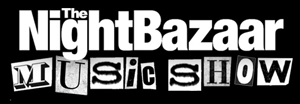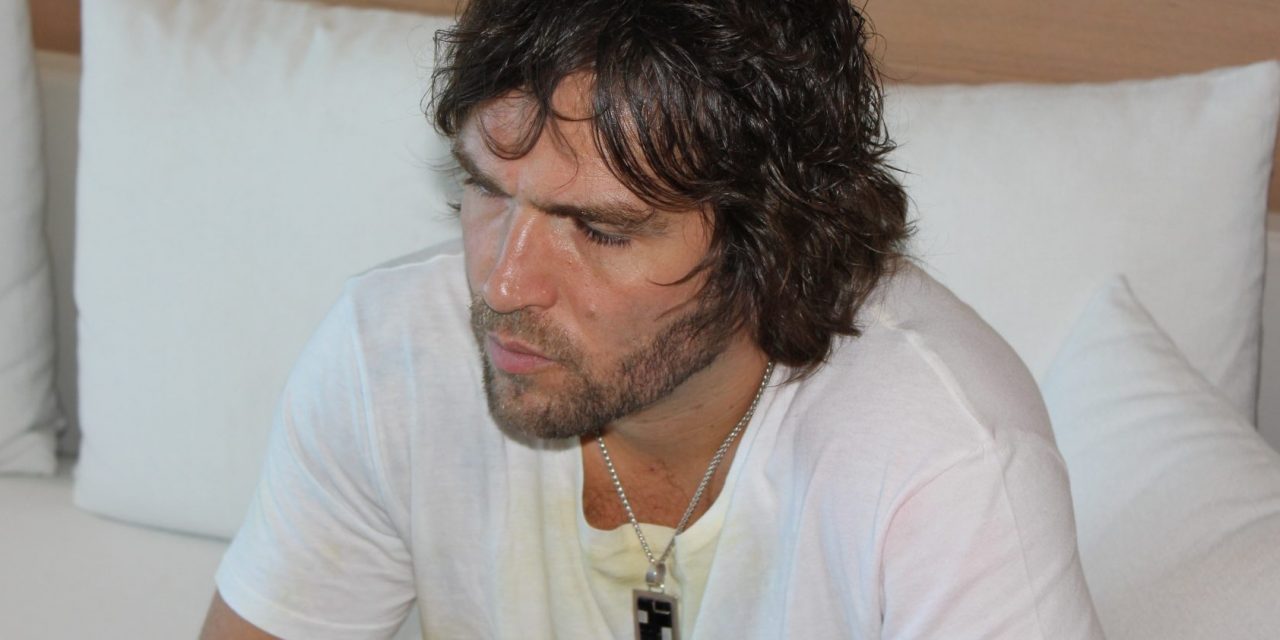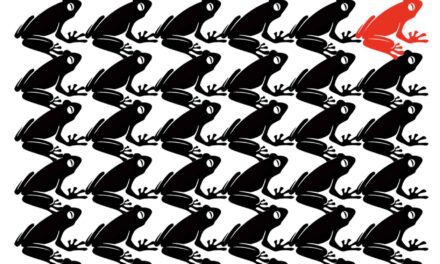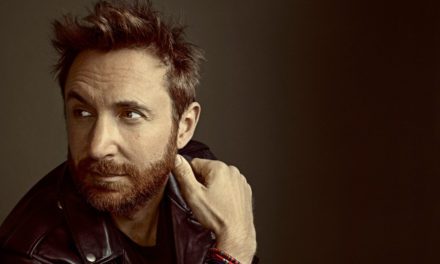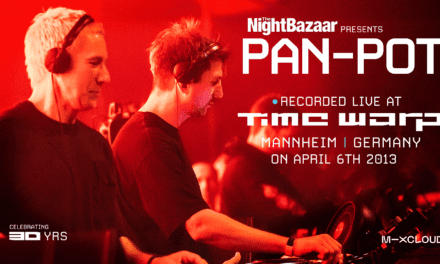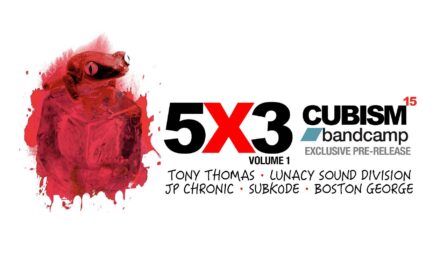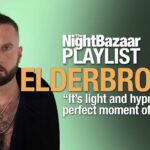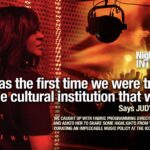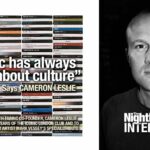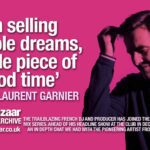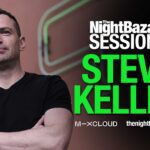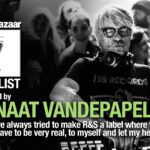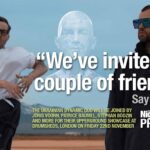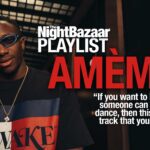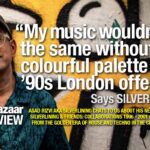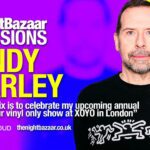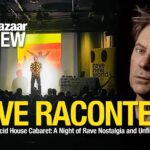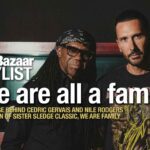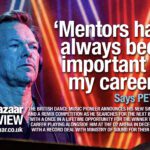WE caught up with Lee Foss back in March at Miami Music Week 2017 to discuss his debut solo album, Alchemy.
As with all proper albums, it always takes a few listens to really ‘get’ it. Whether it be an Oasis album or an electronic masterpiece such as Leftfield’s Leftism these are works which demand listening to from start to finish numerous times to get the full insight in to the artist’s intentions. The same can be said of Lee Foss’ excellent debut long player.
I actually met Lee by chance in the queue to board the same flight to Miami. I spot a classic looking silver record box-style case in front of me in the queue at Heathrow as I eagerly await to board the plane for Music Week. I take a second look at the box and spot a couple of recognisable logos – it’s clear to me that this person loves music and that this person loves Hot Creations…hold on….Yeah, that’s Lee Foss. I say hi and have a photo taken with him. I drop in that I am going to be on business as well as pleasure in Miami and within three sentences Lee agrees to sit down with me and chat about music and more notably, his debut solo album, which was due out imminently.
What was clear from that pre-flight chat is that Lee is an approachable, charismatic, warm person with an infectious and healthy outlook on life. He also emphasises that he’s possibly still not fully understood as a musician by the masses in that reviews of his sets are all very generically labelled with “he plays what he likes”.
We meet at his hotel a few days in to our respective Miami trips where the focus of the interview was to discuss the then upcoming album release – Something that had been in the making now, at least hypothetically, for some time and seemed a natural progression for the man that is already part of a band set-up with Hot Natured (who themselves have morphed over the years to introduce more versatile techniques to their set-up) – but we start with some chat on what Lee loves about Miami and Music Week.
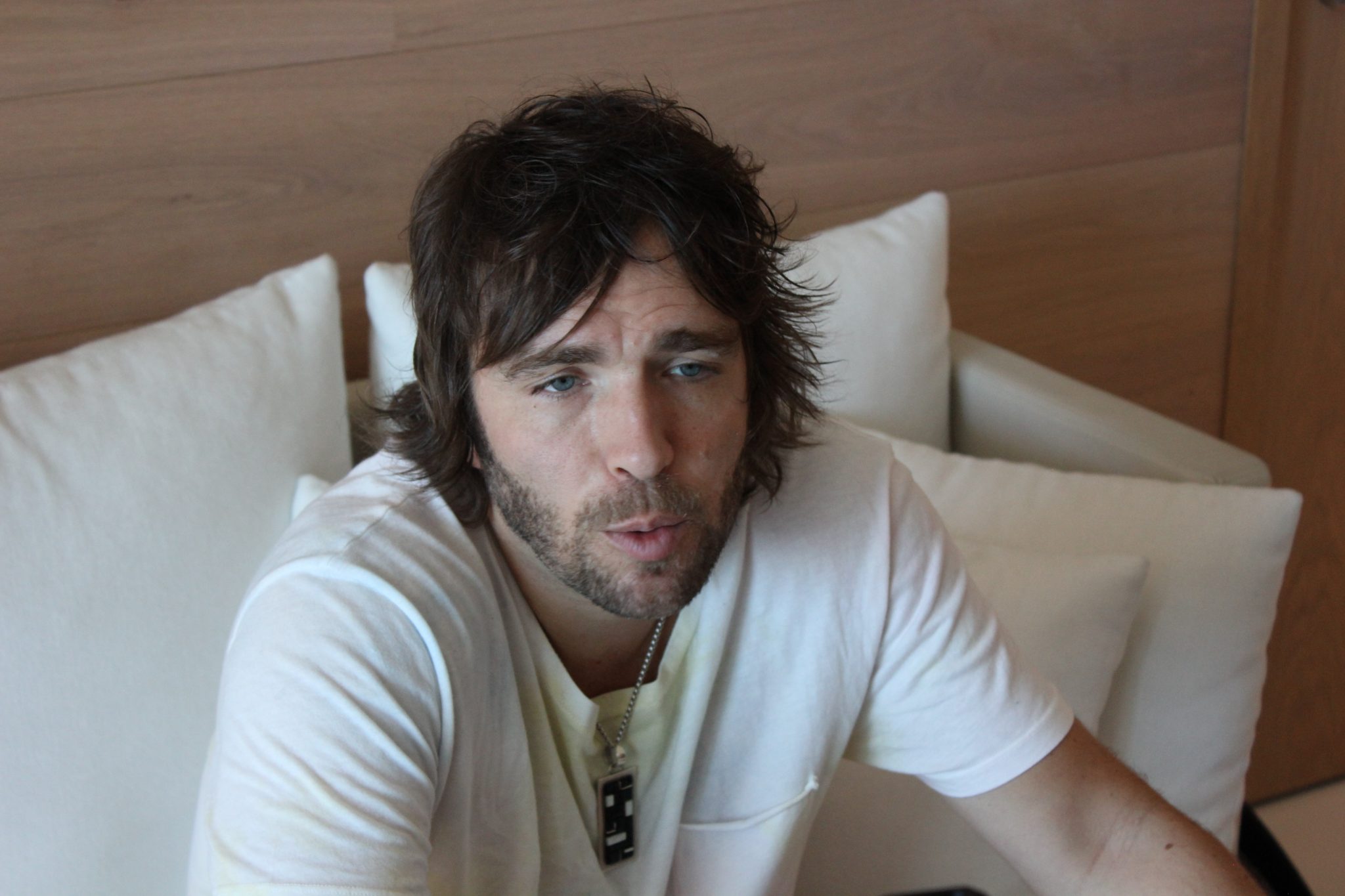
How are you finding Miami this year?
I love coming to Miami, and I’ve got a lot of shows this week. But it’s It’s kind of a departure; I’ve been coming here 13 years and it’s usually that I want to see all my friends, bang, bang, bang, go to all the events, but this year it’s been chilled, I played last night here at Edition with Jamie Jones and that was cool, but yeah, I’m building my way into a really busy week, I’ve got 7 gigs and they’re all pretty high profile, whereas typically in the last few years I’ve been doing fewer gigs.
7 gigs is a pretty heavy week. Why so many this year?
The last 3-4 years it’s typically been focusing on you know Paradise and Ultra and then maybe this show here at Edition. I think this year, the reason I have come back to gigging heavily this week is because I have an album coming out and that I have a single that’s out this last week and I’ve got three great labels that are really up and running and it just feels like a great time to showcase myself, the labels and to be visible. If you’re really going to be as involved as I have been this last year in music and working hard on my own music and the label and new collaborations then this is one of the best places to showcase that”
The journey to releasing your own solo album must involve many influences. Can you name a few of yours?
I was very influenced by 80’s funk and Boogie with their basslines and the Paul Simpson Connection and stuff from ‘Change’ and ‘BB&Q Band’, Also the early house stuff to take advantage of accessibility to drum machines and synthesizers technology that became something outside of what the huge bands could afford when they became a few thousand dollars instead of $20k, £50k.
I was also extremely influenced by 90’s hip-hop and R’n’B and again a lot of that was funk and disco based but also had these eerie keyboard lines played over it and I was very influenced by the vocals. But I think probably another thing that was a noticeable theme through my early music was sampling those vocals because no-one was really doing that, and obviously it was something that became very popular thereafter. And when I was trying to get my foot in the door in 2001/2008 it was also a kind of a reaction to what was popular at that time, Minimal Techno. But I knew 80’s Funk and Disco and 90’s hip-hop, that’s how I was earning a living, but my goal was to be a House and Techno producer. I just think that some of those things were what I knew, and what I could bring to the table and people took interest”
Did you look at the Minimal Techno genre negatively?
There’s no such thing as negative genres. Anyone who starts these genres are originators and have people that follow their lead. The very first stuff is very good, but nobody is going to tell you Daft Punk is bad because they made Disco House in the late 90’s, early 2000’s as it merged into Funky House and it became terrible. No-one is going to say originators are bad, but there’s always a reaction to what’s hyped up by electronic music media and people who are essentially production chasers, they’ll chase genre’s and there’s nothing wrong with that – I’ll get great demo’s from guys and I’ll look at my iTunes and I would be like ‘oh wow’, five years ago I had a bunch of really bad Deep House demos from them and now I’m getting great Tech House demo’s and ‘OK, well they got better with their production, but they are ultimately chasing what they heard was fresh and what they saw was popular.
So yeah, there’s no such thing as a bad genre and I’m sure that when guys like Robert Hood started out making Minimal that was a reaction to styles of house that were overtly popular House and Techno and they felt like they were doing something fresh, and they were.
Personally, when I stepped in to clubs in 2007-2008, it wasn’t just minimal, whether is was the big room house sound – but just wasn’t hearing anything I liked but a few odd songs. So I think these things come and go with waves, different styles that bring different things to the forefront whether it’s types of percussion, types of musicality, vocals, baselines, you know there’s good in every genre.
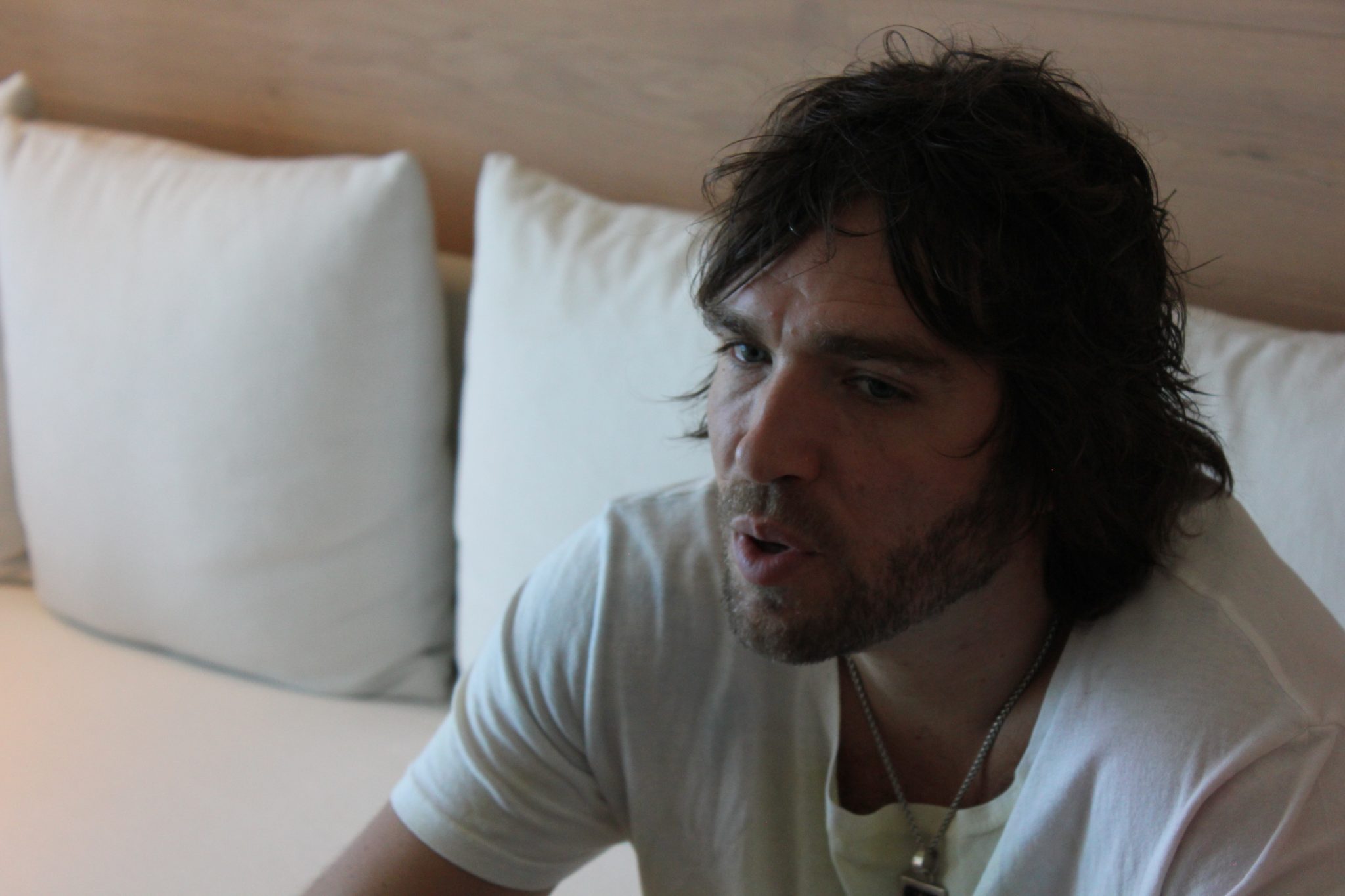

What’s your opinion on the current music trends?
For me personally when I look at where it is right now, this kind of style of pumpy Tech House is actually in a way it’s very functional for me because I’m always going to keep elements of what sets me apart or makes me great, you know, the melodies the vocals, but not in a cheesy way, more classic and interesting and in a sense this style helps me add a driving energy to what I’m already doing.
When you talk about incorporating what’s en-vogue and the best of what’s new to what you do and if you allow it to accentuate what you already do and look for bits in it that directly relate, that have the kind of bassline that I already play, or have the cool funk elements then yeah, it allows you to open up forces you to constantly look for in new music. It’s about keeping yourself honest and making sure you’re putting in the effort. The last year has been great, I’ve really focused on making sure that I’m constantly looking for music and that I stay on top of the labels.
Did you have any early career mentors?
I can’t say I had mentors, I taught myself everything but there were a few people that were helpful in Chicago in some way. I wouldn’t call him a mentor at all but the guy who was music director at Smart Bar that booked me was instrumental in me having the confidence to say ‘OK, someone’s out there that’s booking me in at the most credible place in the city thinks that I’m ready, so I’m doing something right’.
But I can honestly say that the only thing remotely approaching a mentor, and I wouldn’t really call him a mentor is Jamie Jones. We met years before we had any success, he was part of a larger crew that I became friends with in Ibiza and in my second season, living with Jamie, I learned a lot. I knew a lot about House music, but there was a lot of more boutique, obscure, to me at that time anyway, stuff like Metro Area and Justice Conk, and I was learning about things like Chicken Lips and we’d go to a City Rockers night to see Felix Da House Cat and Miss Kitten and so, some of the more Electro-clash and 80’s influenced stuff he was introducing me to.
I probably knew more about traditional House and Chicago House but he was somebody that was really knowledgeable about interesting music and all kinds of cool little labels. He got an interesting ear and idea for what’s fresh and for what’s coming. But what I picked up from him was even more important I would say, as we started to make music, was a workflow. I spent a good few years learning to make music on my own in Logic and some of it was pretty good. I remember something Damien Lazarus paid attention to, that I thought he was going to sign. But me and Jamie sitting down and working together in Ableton, you can not explain the importance of someone who has a really good workflow and the processes that cut down on wasting time and give you more every to be more creative.
What advice would you give as a mentor?
There’s no magic pill, nothing beats putting in the work. I would suggest buying a copy of Ableton Live and spend the thousands of hours in front of your computer, and if you’re not spending those thousands of hours, you can’t throw your hands up and question why somebody else makes something that sounds so much better than what you are doing.
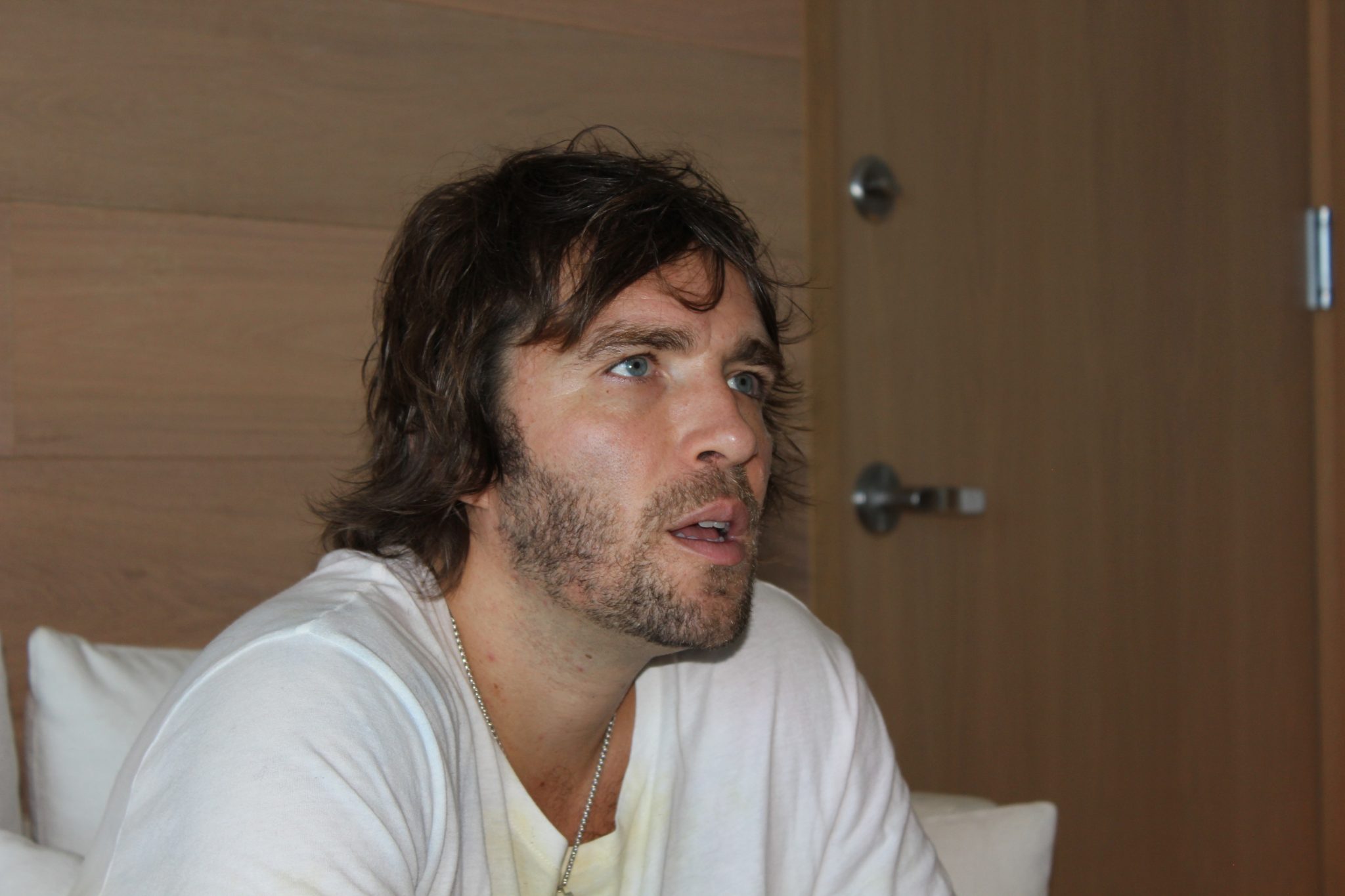

What was it like trying to make it in Chicago?
I think Chicago is a tough market. I’m very, very fiercely proud to be a Chicagoan and I think it’s a show-and-prove city and now I’ve got incredible relationships with Green Velvet and so many Chicago born artists but at the time and before all that coming up, you’re just competition to the local names. They may be nice, but you’re fighting and clawing for a small pie.
What was the Chicago rave atmosphere like as a party goer in your formative years?
Well, you had to be 21 to go to the clubs in Chicago. I started going to raves directly after high school 1997/1998 and some underground after hours clubs in Chicago like Excel. And in the raves I would hear the more Derrick Carter, Stacy Cade style Disco House as well as DJ Funk which was the faster lottery Detroit-Chicago Juke music. But there was also a lot of Trance on the main stages. And if you did go to the teen parties you’d hear more hard-style euro, they definitely weren’t anything I would listen to now. But my favourite stuff was the raves that gave me a great entry point in to the Disco House – the typical Chicago House that had its influences in Disco and Funk.
Let’s talk about the album. Did you have a set agenda with it?
No, me making my own music, it’s just what I’m feeling that day. Sometimes when I sit down with Hot Natured we may set out to start with a certain style and I may start with a single idea but there’s nothing where I think ‘OK, this album needs more of this or that style’, it just needs more great tunes. So that was pretty much my goal, not to overthink stylistically and trying to make sure that it was things I would want to listen to and not skip through.
Is it a DJ friendly album would you say?
I never have expectations for my solo music being played in clubs. And quite frankly, I don’t even know if any of it was ever DJ music. Sure DJ’s have played my tracks like ‘U Got Me’ and I’ve heard DJ’s play ‘Grinding’ but that was when it was so different from what anyone was doing, and that was in the UK. When I make a song my first thought is people listening to it. I’m incapable of making tracks based on whether or not it’s going to chart on Beatport or be played by DJ’s. First and foremost I think ‘Is it a song?’, ‘Does it make me happy?’.
What advice would you give to an artist considering creating their own debut album?
My advice to anyone who is going to sit down, who is already in to a production career who wants to make an original album is ask yourself how does each song relate to each other?, What do they mean sitting next to each other or is it just a bunch of tracks for people to DJ, because if it’s the latter then you should just break it up in to EP’s as you’ll get plenty of work from that set-up.
Is that what you have planned, for listeners to enjoy the album as a journey from start to finish?
It’s certainly the goal, that people will be listening to the album straight through. And maybe in the car or getting ready for the club, at after parties stuff like that. I think that’s the kind of wheelhouse my podcasts and original productions sit in. I just don’t think that there’s enough of that [enjoying an album from start to finish] in this day and age, you know, with the way music is consumed now I don’t think that it’s that common. Creating an album today may not have the same payoff as fifteen, twenty years ago but it doesn’t make it any less important to the artist artistically.
What else goes into creating a long player?
What I had to consider is if it all fit together, what were the best songs, and if I feel that everything did fit together well enough and I had to keep making more until I could put the songs in order and say ‘OK, that’s an album’. And as I was working on the album I had to think, is this different to my other works and does it contribute, but a lot of the stuff is instinct and you can’t sit there and overthink writing music.
How many tracks didn’t make the final cut?
Probably fifteen to eighteen, something close to that were things that I was considering that didn’t make it and I think that’s a good rule of thumb; If you’re a producer who’s made just 10 tracks and says ‘OK, I think I’ve got an album here’…maybe you do, but more than likely there’s work left to be done.
QUICK-FIRE QUESTIONS
3 Artists to watch
Well they’re all already on the rise, but Detlef, Latmun and….I’m gonna go [Mirko] Di Florio.
Favourite Track of all time
My favourite, believe it or not, is ‘Boys II Men – Can you stand the Rain’ because it ties in to certain things I’ve gone through and even when I’m feeling down it’s important to know who’s really there for you.
Best party or set you’ve ever played
The best party I ever played was the Hot Natured party in Barcelona at the W Hotel in 2010. That was just a moment, and the electricity… God I remember the looks on peoples faces and the applause at the last song and I just thought that a lightning bolt had hit.
Where do you see yourself in 5 years, (not necessarily musically)?
In 5 years I’ll be touring less, but still involved in music, probably own a ranch or farm in California, and ahead of the launch of my new water ‘Alchemy Water, I will continue with business ideas, new labels, new stuff but I’ll always be a musician and DJ. And I’ll probably do some writing, maybe some poetry books of my lyrics with art, or maybe I’ll be able to crystallise some ideas in to some TV writing, stuff like that.
Who is Claptone?
Haha, I have no idea, I heard it was two people.
Lee Foss – Alchemy is out now.

